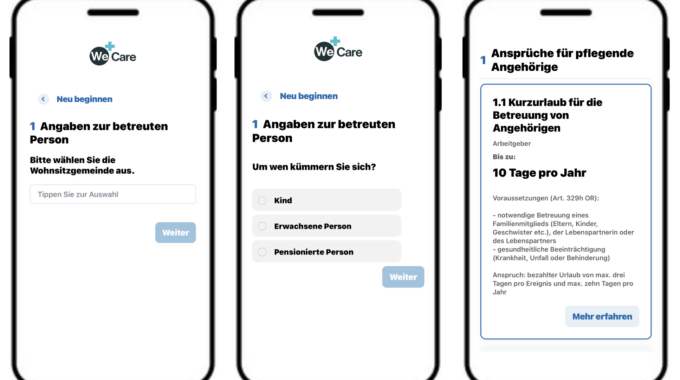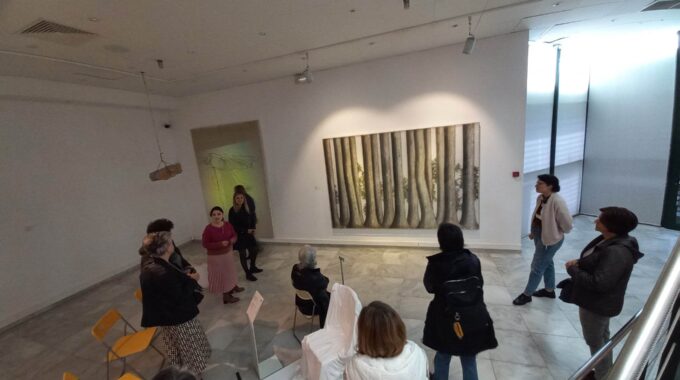
Balancing Work, Life, and Care for Family members
The understanding from managers and colleagues about what it means to be close to someone who needs support and care is crucial. This is something that Karin Säll-Hansson, who has a mother and a daughter who are severely ill, emphasizes.
When the Swedish Family Care Competence Centre (Nka) organized this year’s European Carers’ Day, the theme was Balance matters. Many informal carers are faced with the difficult decision of reducing work hours, forgoing studies, or in some cases, leaving their jobs altogether to be able to take care of a loved one. The risk is that this may affect their long-term economic sustainability and overall well-being.
A work-life care journey – Karin’s story
One of the participants in the European Carers’ Day was Karin Säll-Hansson. Her mother is 98 years old, has impaired vision and hearing, and recently had a fall where she suffered fractures to her pelvis, ribs, and vertebra. Karin visits her as often as she can and is worried about the future. Can her mother continue to live at home?
Being a Carer for Multiple Loved Ones
In addition to her concerns for her mother, Karin’s care extends to her daughter Elina. At the age of ten, Elina began experiencing pain in her joints and muscles, as well as migraines. She later received a vaccination against swine flu and was subsequently diagnosed with narcolepsy.
-Before, it was her body that prevented her from attending school and engaging in leisure activities; now her brain was also affected, causing memory problems, learning difficulties, and cataplexy, says Karin.
The support and care have been round-the-clock.
-I have sought medical care in Sweden and all over the world, managed contacts with healthcare providers and schools, and felt guilty if I took time for my own physical exercise,” says Karin.
Her husband is a teacher and has been able to homeschool Elina. They have tried to create a daily routine that works.
-If we hadn’t had the energy and competence to fight together, I don’t know how it would have turned out, says Karin.
The Importance of a Good Workplace
Twelve years ago, Karin lost her job because her employer couldn’t handle her caregiving challenges. Communication between them broke down. Now, she works at a university where her supervisor has ensured that she receives sufficient support for herself.
-Talk therapy has saved me, says Karin. “I had to learn to be more selfish. I had to give up pursuing a Ph.D. because I couldn’t afford it, but I have, for instance, started dancing in my free time. It’s the most fun I’ve had in my life. ‘Me time’ and recharging are so important. Today, Elina is 34 years old, has two children and a family of her own, but she is still unwell and needs my help and support. So, I need to stay healthy. It is also extremely important to be understood by managers and colleagues and for someone to ask ‘how are you?’
Elina – telling it from her perspective.
Every morning, Elina Vujcic Hansson needs her medication to wake up. Her husband Darko administers it. Elina says she has been dependent on her husband and parents for as long as she can remember.
-The healthcare system has given me my medication so that I survive, but my family has made sure that I live, she says. They have ensured that I, despite my difficulties, get to do fun and meaningful things. My husband is absolutely fantastic at this.
Informal Carers and Healthcare
-Family carers carry a heavy responsibility, says Elina.
She believes it’s important that healthcare providers understand this.
-The other day, we were at my neurologist, and my husband was allowed in and was involved, she says. Knowledge brings understanding and peace. It’s important that he and my parents are also acknowledged. Diseases like this affect the whole family, and those who are not sick need to be able to continue living a healthy life.
Recent findings from Nka:
- 1.3 million Swedes provide help, support or care to a next-of kin.
- Approximately 600 000 are working carers, of these 56.1 percent women.
- 17 percent of the working carers feel their career is affected.
- 40 percent of working carers report decreased work capacity.
- 31 percent state that their career opportunities have been negatively affected.
Gender Differences in Informal Care in Sweden:
- Demanding Care: Women found informal care more demanding than men did.
- Care Duration: Men were often involved in care for less than 1 hour a week.
- Women were more likely to provide 60 hours or more of care weekly.
- Solo Care: Female working carers (WKCs) tended to provide care alone more often than their male counterparts.
Reference:
Vicente, J. et al (2022). Informal care provision among male and female working carers: Findings from a Swedish national survey. Plos one, 17(3), e0263396.
Spotlight on Nka’s ongoing projects:
In collaboration with Region Kalmar län, Nka has initiated a project to equip employers with comprehensive information packages. This initiative will guide them on the best practices to support their employees wo are informal carers.
Text:
Helena Isaksson Baeck, Maria Nilsson, Elizabeth Hanson, Nka 29/10/23.





